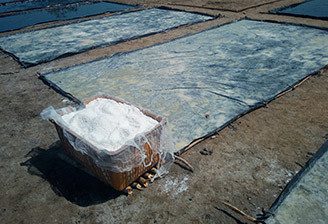Throughout the 18.5 month Construction Phase, the Company completed 40 community projects within its licence area which were developed in consultation with the local communities. These projects included building infrastructure such as maternity units, health posts, classrooms and teacher accommodation, creating boreholes for potable water supply and installing solar panels for power generation.
To look to contribute to the socio-economic fabric of impacted villages near the mine, a number of livelihood projects were also developed. Local cooperatives were established and market gardens created to grow high value crops such as aubergine, chilli, pineapple and cashews. Solar salt production was another early focus. These initiatives taught new agricultural and production techniques to look to both optimise harvest and ensure autonomy of these projects over the longer term. They now provide produce to sell locally into the communities and also to the Bel Air camp site. The team are looking at how they can further beneficiate this process to increase revenues going forward, by supporting access to market and transformation in coming years.
Alufer’s team also supports local enterprise and provides training and assistance to other commercial initiatives. To date over 50 local businesses have been coached with the support of the World Bank, with 12 companies securing contracts of work on site. Going forward Alufer is focused on vocational training and are rolling out on-the-job programmes for local people to look to further upskill the workforce. Over 95% of employees are Guinean and Alufer looks to employ as many people as possible from impacted villages, within the scope of operations.
